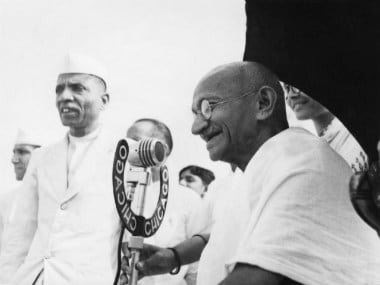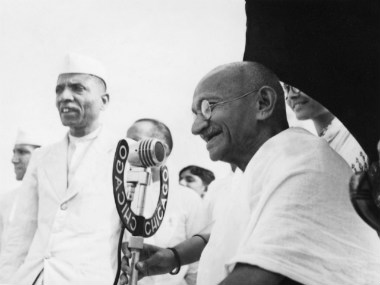Mahatma Gandhi once wrote: “If I had no sense of humour, I would long ago have committed suicide.” A prolific writer and a consummate conversationalist, the Mahatma had something piquant to say about (almost) everything. His thoughts on positivity are a case in point. [caption id=“attachment_7441441” align=“alignleft” width=“380”]
 Image source: Getty Images.[/caption] As we celebrate Mahatma Gandhi’s 150th birth anniversary today, here’s the science behind the power of positive thinking and why we still agree with him more than a century on.
Image source: Getty Images.[/caption] As we celebrate Mahatma Gandhi’s 150th birth anniversary today, here’s the science behind the power of positive thinking and why we still agree with him more than a century on.
Close to the heart
Research shows that positive thoughts, optimistic outlook, cheerful attitude, being humble and showing gratitude is not only good for our social and personal life but these habits have a positive effect on the heart too. Consider these examples:
- Researchers studied 7,942 individuals without any heart problems from 1991-94 in the UK. After a five-year follow-up, the researchers concluded that people with positive psychological well-being had reduced risk of chronic heart disease (CHD). The observation was the same for both genders.
- According to research published in the American Journal of Epidemiology, an optimistic attitude lowers the risk of heart attacks by 38% and that of strokes by 39%. Researchers asked 70,000 nurses to take an optimism questionnaire, and then followed up with them over 10 years. The researchers found that those with optimistic attitudes were not only at lower risk of a heart attack but they were also more educated and enjoyed physical activities more than those with pessimistic attitudes. A positive attitude also came with other health benefits like a lower incidence of hypertension, high cholesterol and type 2 diabetes.
- A positive outlook not only maintains a healthy heart in those who don’t have heart problems, but it is also beneficial for those who already have heart disease. Studies show that being optimistic lowers the chances of heart disease by 38%, having a goal in life and following it with positive zeal lowers the risk of cardiovascular disease (CVD) by 27% and a positive approach or outlook lowers the risk for heart disease by 32%.
How to be positive We know that a negative outlook can make a bad situation seem worse. But it is harmful to our heart, too. A negative approach triggers stress in our body by releasing stress hormones - this increases the risk of hypertension and CVDs. Optimistic people, on the other hand, take less stress and typically get out of a problem faster as they don’t waste their time in sulking and surrendering. They use their time and energy constructively in finding a positive solution to their problem. Happily, positivity is something we can inculcate. All it takes is a little bit of practice. For example, start with these habits:
- Laugh more. Having a little bit of fun every now and then is good for the body and mind.
- The world is beautiful and so are the people around you. Appreciate and enjoy what you have. Try to see the good qualities in others.
- Showing gratitude will not only make you popular, but it will keep your heart healthy too.
- Try to achieve your goals with all your might but don’t be overly disappointed by setbacks. Mahatma Gandhi once said: “Satisfaction lies in the effort, not in the attainment, full effort is full victory."
- Finally, slow down. As the Mahatma said, “there is more to life than increasing its speed."
Make these small changes and let your heart jump with joy. Health articles in Firstpost are written by myUpchar.com, India’s first and biggest resource for verified medical information. At myUpchar, researchers and journalists work with doctors to bring you information on all things health. For more information, please read our article on Heart Disease _._
)